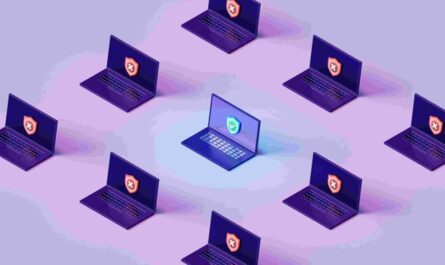Artificial Intelligence (AI) hype is real; many organizations around the globe have integrated AI technology into their workplaces to automate tasks, which increases efficiency and simplifies processes.
Today, AI pervades numerous aspects of our lives, encompassing recommendation engines (like those on Amazon, YouTube, and Spotify), voice-controlled personal assistants (such as Siri and Alexa), self-driving cars (like Tesla’s), customer service chatbots, the latest groundbreaking innovation Chat-GPT and among countless other applications.
It is high time to explore the future of jobs in various sectors to remain relevant and ensure job security. In this blog, we will explore how AI is being utilized in different industries and the impact of AI on the job market.
Applications of AI across Industries :
AI has been reaping benefits for many industries in the market. Here are a few use cases.
1. Healthcare industry:
AI can assist doctors in diagnosis, provide enhanced medical imaging results, assist in drug research and development, facilitate healthcare management, and much more.
2. Education industry:
In the educational field, AI can tutor students and offer personalized guidance, automate the grading process and also assist in administrative tasks.
3. Finance Industry:
In the finance sector, AI processes loan applications, recommends better investment plans, detects fraud, manages risk, and many more. Thus, the future of jobs in the financial sector relates to AI.
4. Manufacturing Industry:
In the manufacturing field, AI has many applications, some of them are predictive maintenance of vital industrial equipment, notifying defects, better control of inventory and supply chain management and collaborative robots to work alongside humans.
AI is the future :
The IBM Global AI Adoption Index Report 2022 provides valuable insights into the global adoption of AI. Here are some statistics from this report that show AI dominating the future of jobs.
1. Across the globe, 35% of companies say that they are currently using AI in their business, and 42% of companies have reported that they are exploring AI. The report also indicates that the adoption of AI has been gradually increasing since 2021.
2.60% of IT professionals in China and India reported that their organizations have adopted AI, making these two countries the top leaders in AI adoption. Following closely are the UK (26%), the US (25%), Australia (24%), and South Korea (22%), all exhibiting higher adoption rates.
Impact of AI in the job market :
AI is no longer a dream; companies are implementing or exploring AI faster than ever. It will affect the job market in both positive and negative ways. Let’s have a look at the effects of AI on the job market to understand the future of jobs, which will help you stay informed and make decisions for your career.
1. Displacement of jobs :
According to the latest global risks report 2023 by the world economic forum, AI and technology will be expected to displace around 85 million jobs by the year 2025. Here are a few examples of jobs which replaces by AI.
-
Retail sales:
Due to the introduction of self-checkout machines, retail salespeople are being replaced by AI. Additionally, AI-powered personal shopping assistants are now employed to recommend products according to customer’s needs.
-
Telemarketing:
Customer service and telemarketing jobs are being taken over by AI-powered chatbots and voice assistants, which provide tailored responses to customers.
-
Transportation and logistics:
Self-driving cars and drones may replace jobs including drivers, and delivery jobs in the transportation and logistics industry.
-
Data analysis:
AI can analyze large amounts of data sets and provide accurate insights faster. Thus, AI may replace data analysis and research jobs.
2. New employment opportunities :
As the integration of AI in workplaces increases, organizations require individuals equipped with skills in machine learning and data science to design, develop, and manage these systems, consequently leading to the emergence of new job opportunities.AI plays a significant role in the future of tech jobs, and a few examples of employment opportunities created by AI are the following:
1. Machine language engineer: Their role involves designing and developing software which automates Machine learning and artificial intelligence models. They work within the data science team.
2. Data scientists: They are responsible for collecting data from various resources, analyzing it and drawing meaningful insights to make informed business decisions.
3.AI engineer: They develop effective Artificial intelligence models with the use of machine learning and understanding of neural networks.
4. Ethical AI specialists: They play a crucial role in ensuring that AI is developed and implemented ethically, with a focus on benefiting all stakeholders without bias. They work within the development or corporate responsibility team.
3. Requires higher-level skills for work:
The negative impact of AI and automation in the job market would be the unemployability of a large number of people who has lower levels of education and skills. On the other hand, people with higher levels of education and skills will be able to adapt to the changing job market.
Future for IT jobs mostly belong to AI, and employees need to upskill and reskill to ensure job security. This can be done by taking courses, attending workshops, and staying up-to-date with trends in the industry
4. Rising importance of interpersonal skills :
AI can automate routine tasks; however, it falls short of solving complex problems effectively and lacks creativity and emotional intelligence. Consequently, in this AI-driven era, employees must possess robust soft skills to complement AI, fostering innovation, understanding other’s emotions, and adapting to changing circumstances.
The future of jobs in the IT sector requires critical soft skills such as communication, teamwork, and critical thinking. Furthermore, the extent to which an organization benefits from AI depends on the employee’s attitude towards it. As a result, there is a greater demand for soft skills in the workplace than ever before.
5. Effect on wages :
AI technological advancements are leading to job displacement and may cause a challenging transition period for some workers. Similarly, during the industrial revolution, average wages remained stagnant for decades despite increased productivity, which was eventually resolved through policy reforms.
In conclusion, the AI revolution in business is undeniably real and is significantly influencing the job market with new job opportunities, job displacements, shifts in essential work skills, and an increased need for soft skills.Despite any potential challenges, the most effective strategy for employees to excel in the AI era is to engage in upskilling and reskilling efforts.



